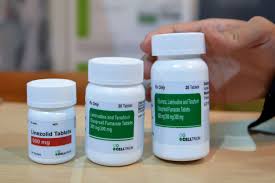Health workers in Abia State are sounding the alarm over a troubling increase in HIV/AIDS cases, attributing the spike to a decline in international support, particularly following policy changes under former U.S. President Donald Trump.
Speaking during a recent workshop for health leaders and managers in the state, stakeholders expressed deep concern over the growing health threat, linking it to the reduction in funding from the United States Agency for International Development (USAID). The agency has historically played a critical role in subsidizing HIV/AIDS medications in Nigeria and other countries.
“Many patients have run out of their drugs because of funding cuts tied to Trump’s anti-aid policy,” one participant said. “Once a person living with HIV stops taking antiretroviral drugs, the viral load can no longer be suppressed, which increases the risk of transmission and health complications.”
The health experts warned that without swift local intervention, the progress made over the years in controlling HIV/AIDS could quickly unravel. They called for immediate action from both state and federal authorities to bridge the gap left by donor agencies and prevent a potential public health crisis.
In addition to funding issues, the stakeholders also raised concerns over the delayed delivery of medical supplies. According to them, critical healthcare products often arrive close to their expiration dates, making it difficult to administer them effectively.
“How can we be receiving drugs in July that expire in September?” one health worker asked in frustration. “We need timely delivery of these supplies to ensure they’re used safely and effectively.”
The group emphasized the urgent need for a new action plan, including increased awareness campaigns, local funding solutions, and improved logistics for health supplies. Without these, they warned, Abia State could see a dangerous resurgence of HIV/AIDS.




